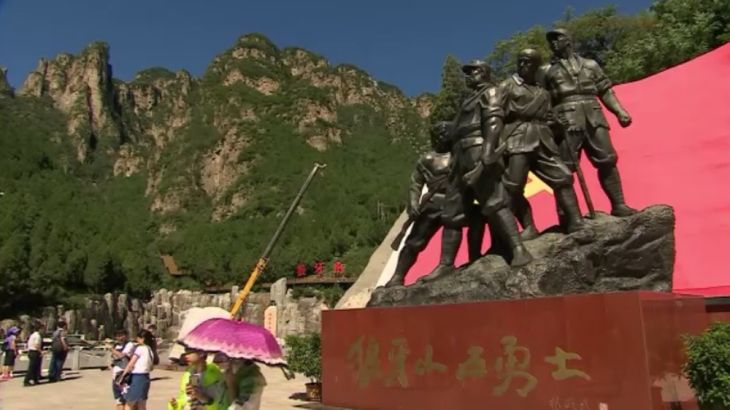
Tales of war: Is China’s academic freedom at risk?
Chinese historian Hong Zhenkuai talks about challenging historical facts supported by the Chinese government.
At two million troops strong, the People’s Liberation Army is the most powerful symbol of Chinese might. Globally, it is recognised as the largest military force in the world. The army’s role and history in society is unquestioned, therefore anyone who dares to challenge it – or any of its legacy – is in for a lot of trouble.
The Five Heroes of Langya Mountain is a tale that has been told to generations of children in schools across China. It has even been turned into a film.
Keep reading
list of 4 itemsJournalist loses foot after being badly wounded in Israeli attack in Gaza
The Take: Layoffs are decimating the media industry. Who profits?
Media feel pressure to tell ‘positive’ China story as party tightens grip
When the Chinese fought the Japanese invaders during World War II, a crucial encounter took place on a mountaintop, according to the tale. After a fierce battle killing numerous Japanese, the Chinese were running out of ammunition. The last remaining soldiers, a total of five, made their final decision: rather than being captured by the Imperial Japanese Army they jumped off the cliff. Three of them died. Two miraculously survived. It all happened in 1941.
But did it really happen?
This is a warning to all the historians, if you dare to challenge the official propaganda and the Communist rule, the law is on the Party's side to protect its authority. You'll lose all the lawsuits and take all the responsibilities. There is no academic freedom, if you can't even raise your doubts. This is absolutely ridiculous.
History is based on facts and historian Hong Zhenkuai decided to find out. He proceeded to dig into archives and testimonies made at the time and study all available records, including Japanese military records. What he found were, he says, discrepancies. Serious discrepancies leading him to question the official version of what happened that day.
For this – with a lost lawsuit on his record and a demand for a public apology from Chinese court – he is now paying the price.
As the Communist Party’s National People’s Congress sets the tone in Beijing, Al Jazeera talks to the man who is taking on the official narrative of the Chinese Army. By doing so, Hong is not only testing the limits of free thinking and public debate, but also the patience of China’s political leadership.
Asked why he won’t simply apologise after losing his job and his magazine, Hong says: “An apology should be made after one person makes a mistake, as a way to make up for it. The problem is, I wrote the article to find out the historical truth. I have evidence and I have no intention to libel or insult anyone within the legal scope. This case is a political one, not a legal one.”
When Talk to Al Jazeera spoke with visitors on Langya Mountain, the information founded by Hong didn’t seem to phase most. The legend was still unscathed in their eyes. Therefore, why is the historian adamant on revealing what he determines to be the truth?
“According to the law, spreading false information is spreading rumours. So, in that sense, the government is also spreading rumours. I understand it was for the purpose of propaganda during the war times. But it has been over 70 years now and the public have the right to know the truth.”